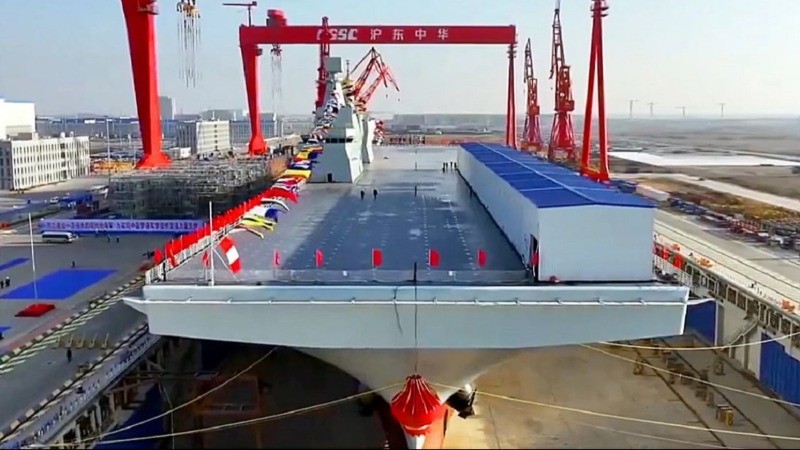
China has unveiled its largest amphibious assault ship yet, the Sichuan, marking a significant leap in the modernization of its naval forces. Launched on Friday, the Sichuan is designed to enhance the Chinese navy’s ability to operate in distant seas and support military operations globally.
Weighing in at 40,000 tons, the Sichuan is the first ship of the 076 type and features an advanced electromagnetic catapult system. This cutting-edge technology allows the ship to launch fighter jets directly from its deck, a capability that boosts its combat readiness and versatility. In addition, the ship is equipped with an "arrestor technology" to help fighter jets safely land on its deck.
The Sichuan is also built to support ground troop deployments, providing air support and launching landing crafts to transport troops. Its launch is a reflection of China's ongoing efforts to modernize its military and expand its influence beyond its regional waters. China’s navy, the People’s Liberation Army Navy (PLAN), has been focusing on improving its operational capabilities on a global scale for over a decade.
The Sichuan is part of China's broader initiative to upgrade its naval fleet, which includes the development of advanced technologies like the electromagnetic catapult. This system was first tested on China’s indigenous aircraft carrier, the Fujian, which entered service two years ago. Chinese military expert Song Zhongping referred to the Sichuan as a "light aircraft carrier," highlighting its powerful design and strategic potential.
The ship is still undergoing further testing, including sea trials, before it becomes fully operational. The launch of the Sichuan comes as China also explores the possibility of building a nuclear-powered aircraft carrier, which would allow its navy to operate even further from its home shores without needing to rely on refueling bases.
With the world’s largest navy, China continues to advance its fleet, and its plans for a nuclear-powered aircraft carrier could rival the United States, which currently operates 11 nuclear-powered carriers capable of maintaining a global presence.